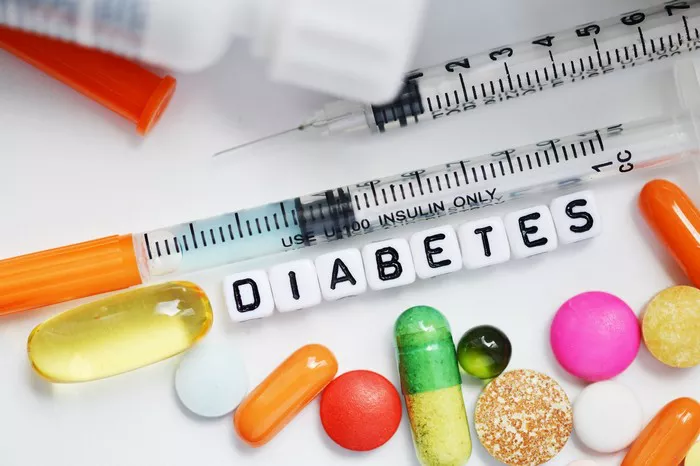Diabetes is a chronic condition that requires careful dietary management. Oatmeal, a popular breakfast choice, has long been a subject of discussion in the context of a diabetic diet. It is known for its nutritional value and potential health benefits. However, its impact on blood sugar levels in diabetics is a crucial factor to consider. Understanding the various aspects of oatmeal, including its composition, different types, and how it can be prepared and consumed, can help diabetics make an informed decision about whether it is a suitable addition to their diet.
Nutritional Composition of Oatmeal
Oatmeal is rich in several essential nutrients. It is a good source of complex carbohydrates, mainly in the form of beta-glucan, a type of soluble fiber. A typical serving of oatmeal contains around 27 grams of carbs, with about 4 grams of fiber. The fiber in oatmeal has numerous benefits. It helps in slowing down the digestion and absorption of carbohydrates, which in turn can prevent a rapid spike in blood sugar levels. For example, the beta-glucan forms a gel-like substance in the gut, which delays the emptying of the stomach and the release of glucose into the bloodstream. Oatmeal also provides a small amount of protein, approximately 5 grams per serving, which is beneficial for maintaining muscle mass. Additionally, it contains essential minerals such as manganese, phosphorus, and magnesium. Manganese is important for bone health and metabolism, phosphorus is involved in energy production and cell structure, and magnesium plays a role in insulin sensitivity and blood sugar regulation.
Types of Oatmeal and Their Impact on Blood Sugar
There are different types of oatmeal available, and they can have varying effects on blood sugar. Rolled oats are the most common type. They are minimally processed and retain much of their natural fiber and nutrients. When cooked, rolled oats have a relatively low glycemic index (GI), usually ranging from 42 – 55. This means they cause a slower and more gradual increase in blood sugar compared to high-GI foods. Steel-cut oats, which are less processed than rolled oats, have an even lower GI. They take longer to cook but are denser in texture and have a more pronounced effect on satiety. Instant oatmeal, on the other hand, may have a higher GI. This is because it is often pre-cooked and then dehydrated, which can break down some of the fiber and make it more quickly digested. Some instant oatmeal varieties also come with added sugars and flavorings, which can significantly increase the sugar content and the impact on blood sugar levels. Diabetics should choose plain, unflavored rolled or steel-cut oats and avoid instant oatmeal with added sugars.
The Role of Fiber in Oatmeal for Diabetics
The fiber in oatmeal is one of its most significant advantages for diabetics. As mentioned earlier, the soluble fiber, especially beta-glucan, helps in regulating blood sugar. It does this by binding to glucose molecules and slowing down their absorption. This not only prevents sudden spikes in blood sugar but also helps in maintaining more stable blood sugar levels throughout the day. For instance, a study showed that consuming oatmeal regularly can improve glycemic control in type 2 diabetics. The fiber in oatmeal also has a positive impact on cholesterol levels. It can help in reducing LDL (bad) cholesterol by binding to bile acids and removing them from the body. This is beneficial as diabetics are at an increased risk of heart disease, and maintaining healthy cholesterol levels is an important part of overall health management. Moreover, the fiber promotes a feeling of fullness, which can prevent overeating and aid in weight management. Diabetics who struggle with weight control can benefit from the satiety provided by oatmeal, potentially reducing their overall calorie intake.
How to Prepare Oatmeal in a Diabetes-Friendly Way
Preparing oatmeal in a diabetes-friendly manner is essential. First, choose plain oats without added sugars or flavorings. Instead of using water, cooking oatmeal in milk (preferably low-fat or skim) can add some protein and creaminess. However, it is important to account for the additional carbohydrates from the milk. Adding a small amount of nuts, such as almonds or walnuts, can provide healthy fats and extra protein. For example, a tablespoon of chopped almonds contains about 3 grams of protein and 6 grams of healthy fat. Berries like strawberries, blueberries, or raspberries can be added for natural sweetness and additional fiber. A half-cup of berries provides about 4 grams of fiber and a relatively low amount of carbs. Avoid using large amounts of sugar or honey to sweeten the oatmeal. If a sweeter taste is desired, a small amount of artificial sweetener or a teaspoon of cinnamon can be used. Cinnamon has been shown in some studies to have a positive effect on blood sugar levels by increasing insulin sensitivity.
Portion Control and Combining Oatmeal with Other Foods
Portion control is crucial when it comes to eating oatmeal as a diabetic. A typical serving size of cooked oatmeal is about 1/2 to 3/4 cup. Eating larger portions can lead to a higher carbohydrate intake and potentially a more significant impact on blood sugar levels. Combining oatmeal with other foods can help in creating a more balanced meal. As mentioned, adding nuts and berries is a good option. Another way is to have a side of eggs or a small portion of Greek yogurt. Eggs provide protein and healthy fats, while Greek yogurt is high in protein. For example, a 6-ounce serving of Greek yogurt contains about 15 grams of protein. This combination of oatmeal with protein-rich foods can further slow down the digestion and absorption of carbohydrates, resulting in a more stable blood sugar response. Diabetics can also consider having a small piece of whole fruit, like an apple or an orange, after eating the oatmeal to spread out the carbohydrate intake over a longer period.
Considerations and Precautions for Diabetics Eating Oatmeal
While oatmeal can be a beneficial addition to a diabetic diet, there are some considerations. Diabetics should monitor their blood sugar levels after eating oatmeal, especially when trying a new type or preparation method. This can help them understand how their body responds and make any necessary adjustments. If a diabetic is taking medications or insulin, they may need to adjust the dosage based on their oatmeal consumption. It is also important to note that some people may have individual sensitivities or allergies to oats. Although rare, oat allergy can cause symptoms such as skin rashes, itching, or digestive problems. Additionally, if a diabetic has other health conditions, such as celiac disease or gluten intolerance, they should ensure that the oatmeal they choose is gluten-free. Some oats may be cross-contaminated with gluten during processing.
Conclusion
Oatmeal can be a good food choice for diabetics. Its nutritional composition, particularly the presence of fiber, along with its potential to help regulate blood sugar levels and provide other health benefits, makes it a valuable addition to a diabetes-friendly diet. However, choosing the right type of oatmeal, preparing it in a healthy way, controlling portion sizes, and being aware of individual considerations and precautions are all essential. By incorporating oatmeal into a well-balanced diet and monitoring blood sugar levels, diabetics can enjoy the benefits of this nutritious food while effectively managing their diabetes. It is always advisable for diabetics to consult with a healthcare provider or a registered dietitian to determine the best dietary plan that includes oatmeal or any other food item based on their specific health needs and goals.
Related topics



























